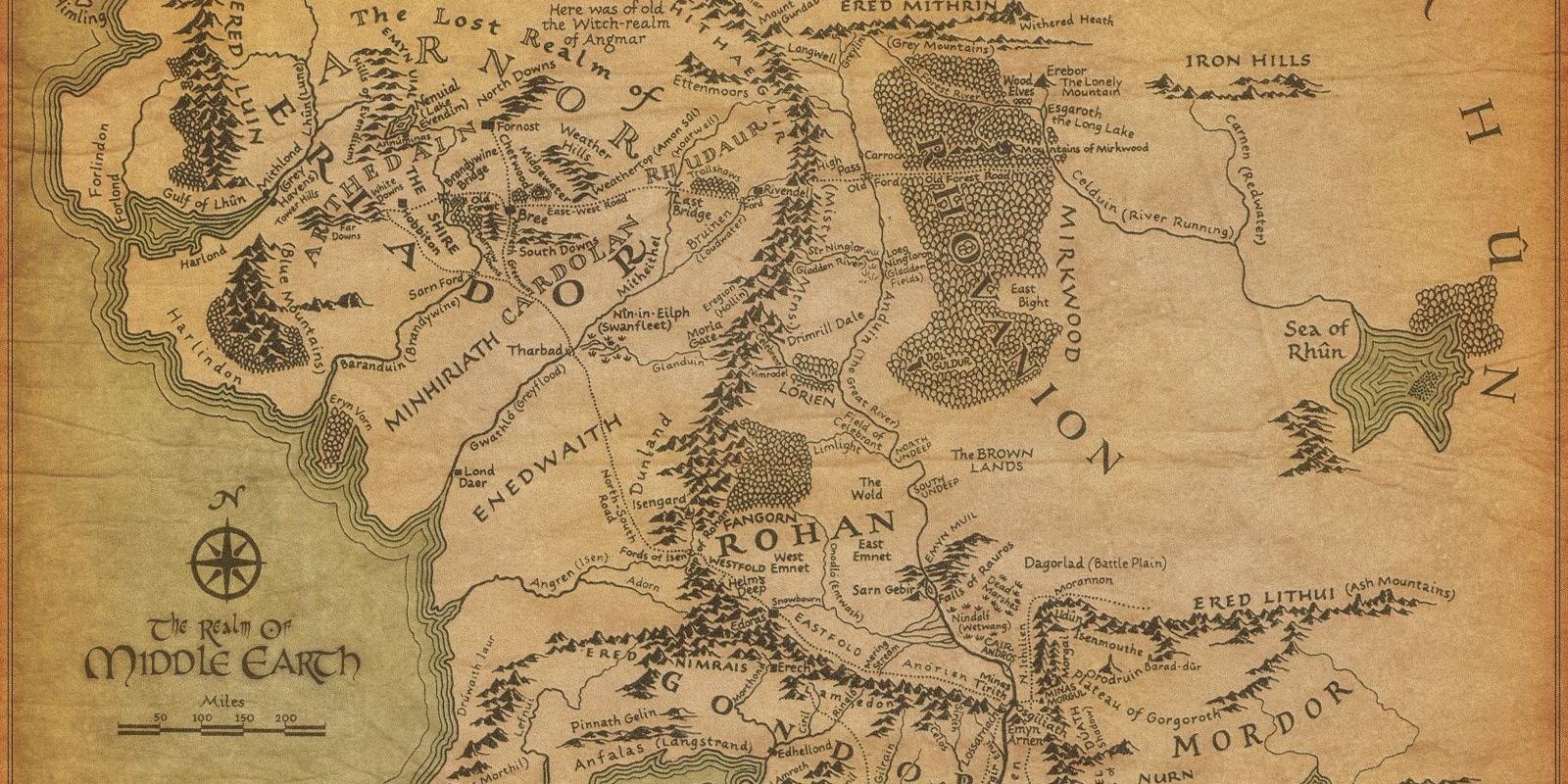One of the most important fantasy stories of the 20th century, The Lord of the Rings has become a benchmark of literature and resulted in some massively successful adaptations over the years. The epic trilogy ends on such a defined and victorious note that it's hard to imagine anything following it up -- which was a sentiment shared by the story's author. The Lord of the Rings trilogy almost once received a sequel story in the form of J.R.R. Tolkien's The New Shadow, but the legendary creator ended up deciding the story wasn't up to his personal standard.
Following the conclusion of The Lord of the Rings, the Fellowship splintered apart. Frodo, Gandalf, and Bilbo were gone, having made the trip to the Grey Havens. Meanwhile, the other heroes largely settled down and began families of their own. The Appendix's written by Tolkien delved into their later lives -- and eventually charted the deaths of Aragorn, Merry, and Pippin, while also revealing Sam, Legolas, and (maybe) Gimili made the trek to the ancient realm as well. In Aragorn's stead, his and Arwen's son Eldarion stepped up and became ruler of Gondor. The Appendix implied that Eladrion's rule would be a just one, and one without any of the darkness that had come to define the end of the Third Age of Middle-earth.
But that almost wasn't the case, as Tolkien had actually considered creating a sequel to the trilogy. Titled The New Shadow, the story would have picked up over a century following the events of The Return of the King. The War of the Ring would be considered a modern myth -- as only the oldest men and women alive in this period were witnesses to the shadow of Sauron. Dissent grows in some pockets of Gondor under the rule of Eladrion, while rebellion seems to be festering in the kingdom. There are even rumors of the "Dark Tree" and a mysterious figure known as Herumor, who is amassing dissenters to his side -- and figures, such as the elderly citizen of Gondor named Borlas, recognizing the seeds of evil sprouting in the world once again.
Tolkien only ever wrote 13 pages of this storyline, focusing on Borlas and a conversation he has with a man implied to be one of Herumor's followers. Despite the likely success any follow-up to the massively popular and influential The Lord of the Rings trilogy would accrue, the author decided against finishing the story. The 13 pages he wrote of The New Shadow only appeared in Christopher Tolkien's The Peoples of Middle-earth (which collected this and other unfinished works from Tolkien, similar to his recently released artwork). Tolkien directly addressed the concept of the sequel in a letter (later reprinted in The Letters of J.R.R. Tolkien).
Describing the story as "sinister and depressing," Tolkien was ultimately put off by the dour nature of the tale. Focusing almost solely on humans (who previous stories had established as morally dubious), Tolkien decided the only real arc would have been a "thriller" about uncovering the plots against Eldarion with little other weight. This led Tolkien to abandon the concept, meaning The Lord of the Rings canonically ends on a much more positive note. But the concept of a Lord of the Rings sequel does remain an interesting one. The world of Middle-earth in the Fourth Age would have been worth exploring, as the last of the magics faded away and were lost.
Alliances between Rohan and the Shire could have been explored, while the Dwarves' isolated nature could have been good fodder for a tenser storyline. Seeing all of this with a completely fresh cast -- as every major character from the previous stories would either have died or gone to the Grey Havens by this point -- could have been interesting. But it also seems like a far more down-to-earth and gritty tale than most of the poetic and bardic stories of Tolkien's other works, and it makes sense why he ultimately decided not to finalize the tale.



